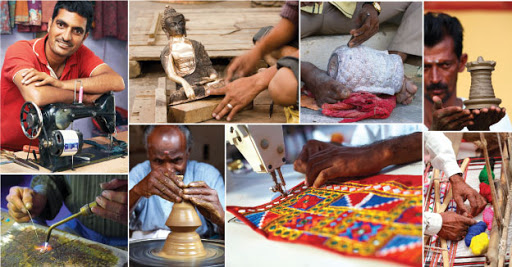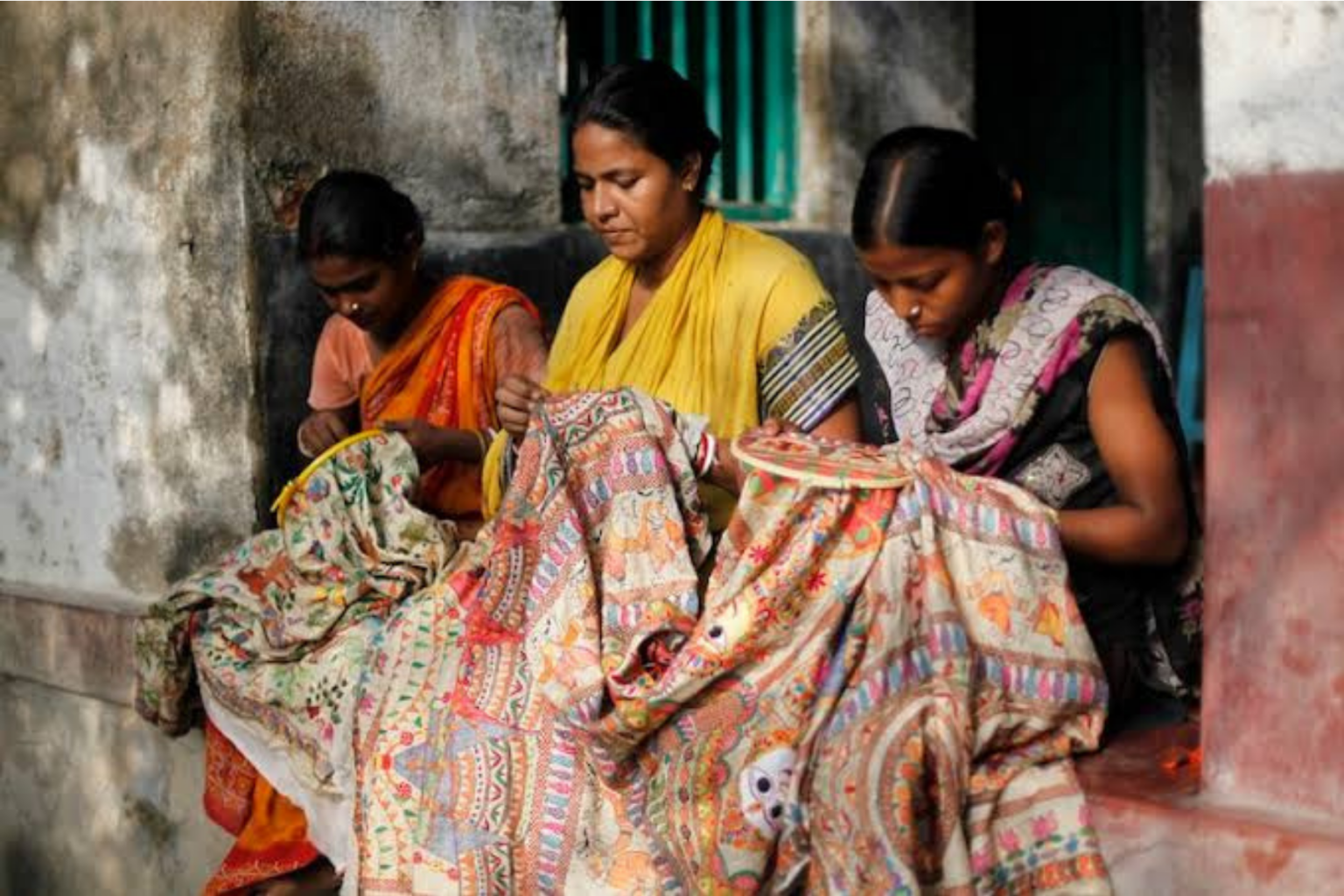The history and significance of handloom and handicrafts in our culture and traditions

Handloom and handicrafts have been an integral part of our culture and traditions for centuries. These unique art forms are not only beautiful but also hold immense cultural significance and historical value. In this blog, we will explore the history and significance of handloom and handicrafts in our culture and traditions.
The history of handloom and handicrafts dates back to ancient times when people used to weave cloth by hand using simple tools like the handloom. Over time, the art of weaving evolved and became more sophisticated, with weavers experimenting with different techniques, colors, and patterns.
Handicrafts, on the other hand, are products made by skilled artisans using their hands and simple tools. The history of handicrafts in India can be traced back to the Indus Valley Civilization, where craftsmen made pottery, terracotta figurines, and metal objects. Over time, various communities across India developed their unique handicrafts, such as woodwork, embroidery, and metalwork.

Handlooms and handicrafts play an essential role in our culture and traditions. They are an expression of our creativity, our history, and our identity as a nation. Many of our festivals and celebrations are incomplete without handloom and handicraft products, such as sarees, stoles, handicraft home decor, and traditional jewelry.
Handlooms and handicrafts are also a significant source of livelihood for millions of people in India. These products are made by skilled artisans, who have learned their craft from their ancestors and families. By promoting and buying handloom and handicraft products, we can support these artisans and help them earn a sustainable income.
India is renowned for its rich handloom and handicraft culture, with artisans producing unique and high-quality products using traditional techniques. However, despite the cultural and economic significance of these industries, many artisans struggle to find sustainable markets for their products. Yes!poho is a brand that is committed to promoting handloom and handicraft culture by partnering with artisans and showcasing their products. Here are some of the ways in which Yes!poho is promoting handloom and handicraft culture:
Supporting Artisans: Yes!poho partners with artisans across India, providing them with a platform to showcase their products and connect with customers. By working directly with artisans, Yes!poho helps to support the traditional skills and techniques that are passed down through generations.

Showcasing Handloom and Handicraft Products: Yes!poho product range includes a variety of handloom and handicraft products, such as bags, clothing, and home decor items. By showcasing these products, Yespoho is helping to raise awareness of the unique and high-quality products that are produced by artisans across India.
Preserving Traditional Techniques: Handloom and handicraft products are often made using traditional techniques that have been passed down through generations. Yes!poho is committed to preserving these techniques by working with artisans and promoting their products.
Empowering Artisans: By providing artisans with a sustainable market for their products, Yes!poho is empowering them to continue practicing their craft and supporting their families and communities. This not only benefits the artisans but also helps to preserve the cultural heritage of India.
Promoting Sustainable and Ethical Practices: Yes!poho is committed to promoting sustainable and ethical practices in the production of handloom and handicraft products. By prioritizing eco-friendly materials and fair trade practices, Yes!poho is helping to create a more sustainable and equitable industry.
By promoting handloom and handicraft culture, Yes!poho is helping to preserve the unique cultural heritage of India while also creating sustainable markets for artisans. As a brand that prioritizes sustainability and ethical practices, Yespoho is well-positioned to attract customers who are looking for eco-friendly and socially responsible products.
In recent years, handloom and handicrafts have gained renewed attention and appreciation both nationally and internationally. The government of India has launched various initiatives to promote these art forms and create awareness about their significance. Handlooms and handicrafts are now a part of the global fashion industry, with many designers incorporating traditional designs and techniques into their collections.

In conclusion, handloom and handicrafts are an integral part of our culture and traditions. They are not just beautiful art forms but also hold immense cultural and historical value. By promoting and buying handloom and handicraft products, we can support our artisans, preserve our heritage, and promote sustainable development.
#handicrafts #handloom #traditionalcrafts #culturalheritage #artisanalcrafts #indianhandicrafts #textiles #handmade #sustainablecrafts #artisans

